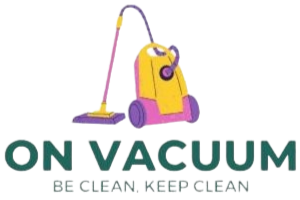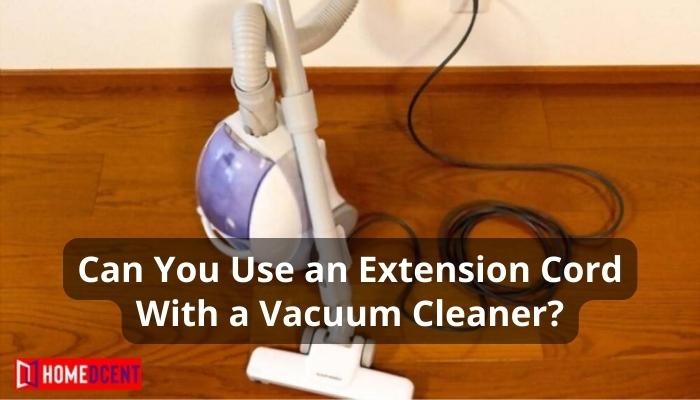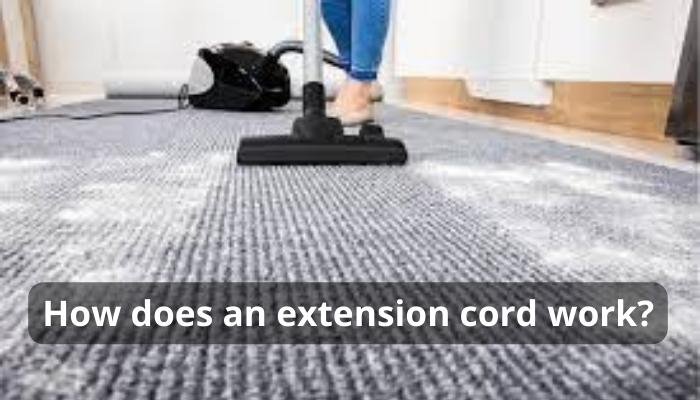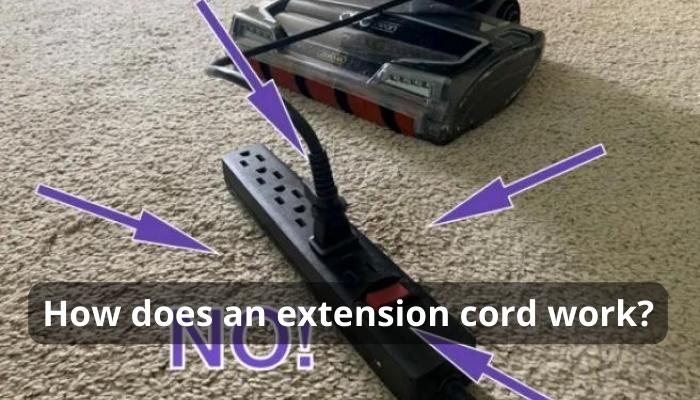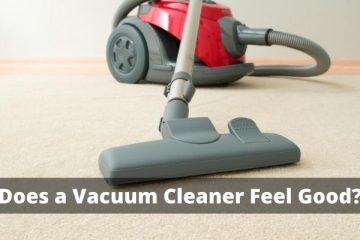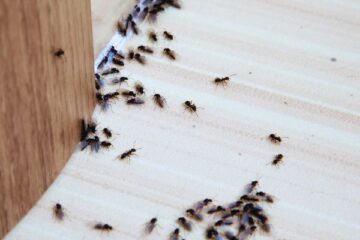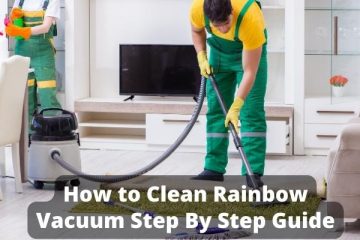Have you ever wanted to vacuum your house but found that the cord of your vacuum cleaner needed to be longer to reach every corner? If so, you might have used an extension cord to solve this problem. An extension cord is a flexible electrical cable that can extend the power supply from an outlet to a device. It can be handy when you need to use an appliance that has a short or fixed cord, such as a vacuum cleaner. But can you use an extension cord with a vacuum cleaner? Is it safe and practical to do so? In this article, we will answer these questions and provide you with some helpful information and tips on how to use extension cords with vacuum cleaners. We will also discuss some alternatives to extension cords that you should consider.
The Risks of Using Extension Cords With Vacuum Cleaners
Before you plug your vacuum cleaner into an extension cord, you should be aware of the potential risks and drawbacks of doing so. Using extension cords with vacuum cleaners can cause some problems, such as:
Voltage Drop and Power Loss
One of the main issues with using extension cords with vacuum cleaners is that they can cause voltage drop and power loss. Voltage drop is the decrease in voltage that occurs when electricity travels through a wire. The longer and thinner the wire, the more voltage drop there is. Power loss is the reduction in power output that results from a voltage drop.
Why is this a problem for vacuum cleaners? Well, vacuum cleaners need a certain amount of voltage and power to operate correctly and efficiently. If the voltage and power are too low, the vacuum cleaner will not be able to suck up dirt and dust as well as it should. It might also run slower, make more noise, and wear out faster.
For example, let’s say you have a vacuum cleaner that requires 120 volts and ten amps to work. If you use a 100-foot extension cord that has a 16-gauge wire, the voltage drop will be about 16 volts, and the power loss will be about 200 watts. This means that your vacuum cleaner will only receive 104 volts and eight amps, which is not enough to run at its optimal level.
Overheating and Fire Hazard
Another issue with using extension cords with vacuum cleaners is that they can overheat and pose a fire hazard. Overheating occurs when the extension cord gets too hot due to the high current and resistance of the wire. This can damage the insulation of the cord and expose the bare wires, creating a risk of electric shock and fire.
Overheating can also affect the vacuum cleaner itself, as it can cause the motor to overheat and burn out. This can result in smoke, sparks, and flames, which can ignite the extension cord, the vacuum cleaner, or the surrounding materials.
For example, let’s say you have a vacuum cleaner that draws 12 amps of current. If you use a 50-foot extension cord that has a 16-gauge wire, the resistance of the wire will be about 0.8 ohms. This means that the power dissipated by the wire will be about 115 watts, which is enough to heat the cord to over 100 degrees Fahrenheit. If the cord is coiled up or covered by a rug, the heat will not be able to escape, and the cord will get even hotter, potentially reaching the point of ignition.
Tripping and Injury
A third issue with using extension cords with vacuum cleaners is that they can create tripping and injury hazards. Tripping and injury hazards occur when the extension cord is not adequately secured or routed, and it becomes an obstacle or a snare for the users or others. This can cause accidents and injuries, such as falls, cuts, bruises, sprains, fractures, and electrocutions.
For example, let’s say you have a vacuum cleaner that has a 25-foot cord, and you use a 50-foot extension cord to reach the other side of the room. If you leave the extension cord lying on the floor, someone might trip over it and hurt themselves. If you wrap the extension cord around the furniture, the vacuum cleaner might pull it and knock over the furniture. If you run the extension cord under the door, the door might close on it and cut the cord, exposing the live wires.
SEE ALSO: Dyson Vacuum Wattage: Power, Efficiency, and More!
The Best Practices of Using Extension Cords With Vacuum Cleaners
As you can see, using extension cords with vacuum cleaners can be risky and problematic. However, sometimes, you might not have a choice, and you might need to use an extension cord to vacuum your house. In that case, you should follow some best practices to minimize the risks and maximize the effectiveness of using extension cords with vacuum cleaners. These include:
Choosing the Right Extension Cord
The first and most crucial step is to choose the right extension cord for your vacuum cleaner. The right extension cord should be:
- High-quality and heavy-duty. It should have a UL (Underwriters Laboratories) or ETL (Electrical Testing Laboratories) certification, which indicates that it meets the safety standards and requirements for electrical products. It should also have a three-prong plug and a grounding wire, which provide extra protection against electric shock and fire.
- Short and thick. It should be as quick as possible and as wide as necessary to avoid voltage drop and power loss. The length of the extension cord should not exceed 50 feet, and the gauge of the wire should match or exceed the amperage of the vacuum cleaner. The gauge of the wire is the measure of its thickness and is inversely proportional to its number. For example, a 14-gauge wire is thicker than a 16-gauge wire. You can check the ratings and labels of the extension cord and the vacuum cleaner to find out their length, gauge, and amperage.
Using the Extension Cord Safely
The second step is to use the extension cord safely with your vacuum cleaner. To do so, you should:
- Avoid overloading the extension cord. You should not plug more than one appliance into the extension cord, plug the extension cord into another extension cord, or use a power strip or a surge protector with the extension cord. These practices can overload the extension cord and cause overheating and fire.
- Avoid overheating the extension cord. You should not cover the extension cord with rugs, carpets, or other materials that can trap heat and prevent ventilation. You should also not coil up or knot the extension cord, as this can increase the resistance and the heat of the wire. You should inspect the extension cord regularly for signs of damage, such as cracks, cuts, burns, or exposed wires, and replace it if necessary.
- Avoid tangling and damaging the extension cord. You should secure and route the extension cord properly so that it does not become an obstacle or a snare for you or others. You should keep the extension cord away from sharp edges, corners, or objects that can cut or pinch it. You should also keep the extension cord away from water, moisture, or wet surfaces that can cause electric shock or short circuits.
Alternatives to Extension Cords
The third step is to consider some alternatives to extension cords that can be used with vacuum cleaners. Extension cords are one of many solutions to the problem of short or fixed cords. Other options can be more convenient, safe, and practical, such as:
- Cordless vacuum cleaners. These are vacuum cleaners that run on batteries and do not need any cords at all. They are portable, flexible, and easy to use. They can reach any spot in your house without any hassle. However, they also have some drawbacks, such as limited battery life, lower suction power, and higher cost.
- Central vacuum systems. These are vacuum systems that are installed in your house and have a central unit that collects dirt and dust from multiple outlets. They have long and flexible hoses that can be attached to any outlet and used to vacuum any room. They are powerful, quiet, and efficient. They can also improve the air quality and reduce allergens in your house. However, they also have some drawbacks, such as high installation costs, maintenance issues, and space requirements.
- Multiple outlets. These are additional outlets that can be installed in your house to provide more power sources for your appliances. They can be placed in strategic locations, such as near the walls, corners, or stairs, where you might need to use your vacuum cleaner. They can eliminate the need for extension cords and make vacuuming more accessible and faster. However, they also have some drawbacks, such as installation cost, wiring complexity, and aesthetic impact.
SEE ALSO: Understanding Electric Shocks from Vacuum Cleaners
Final Thoughts:
In conclusion, using extension cords with vacuum cleaners can be a tricky and risky business. It can cause voltage drop, power loss, overheating, fire hazards, tripping, and injury. Therefore, you should be careful and follow some best practices when using extension cords with vacuum cleaners. These include choosing the right extension cord, using the extension cord safely, and considering some alternatives to extension cords.
We hope this article has answered your question and provided you with some helpful information and tips on how to use extension cords with vacuum cleaners. If you have any comments, questions, or suggestions, please feel free to share them with us. We would love to hear from you. Thank you for reading, and happy vacuuming!
FAQs
Here are some frequently asked questions and their answers related to the topic of this article:
Q: How do I know the gauge of my extension cord?
A: You can check the label or the packaging of your extension cord to find out its gauge. You can also use a wire gauge tool or a ruler to measure the diameter of the wire. The smaller the diameter, the higher the gauge number.
Q: How do I know the amperage of my vacuum cleaner?
A: You can check the label or the manual of your vacuum cleaner to find out its amperage. You can also use a multimeter or an ammeter to measure the current draw of your vacuum cleaner.
Q: How long can I use an extension cord with my vacuum cleaner?
A: You should use an extension cord with your vacuum cleaner only for a short period and only when necessary. You should not use an extension cord with your vacuum cleaner for more than an hour at a time, and you should unplug it when you are done.
Q: Can I use a surge protector or a power strip with my extension cord and vacuum cleaner?
A: No, you should not use a surge protector or a power strip with your extension cord and vacuum cleaner. These devices can overload the extension cord and cause overheating and fire. You should plug your vacuum cleaner directly into the extension cord and plug the extension cord directly into the wall outlet.
Q: What are some signs that my extension cord or vacuum cleaner is overheating?
A: Some signs that your extension cord or vacuum cleaner is overheating are: the cord or the vacuum feels hot to the touch, the cord or the vacuum emits smoke or sparks, the cord or the vacuum smells burnt or melted, the cord or the vacuum makes unusual noises or stops working. If you notice any of these signs, you should unplug the extension cord and the vacuum cleaner immediately and let them cool down. You should also inspect them for any damage and replace them if necessary.
